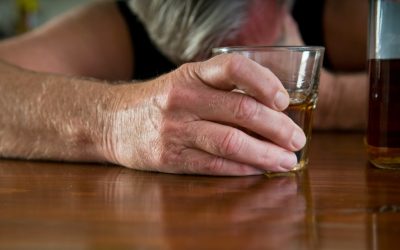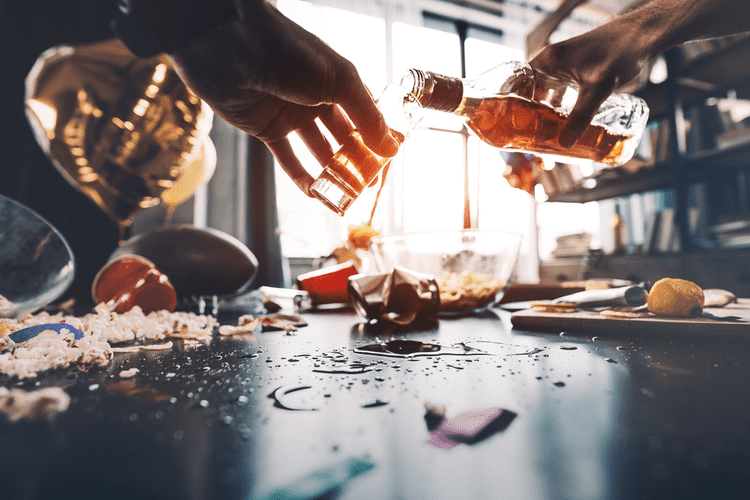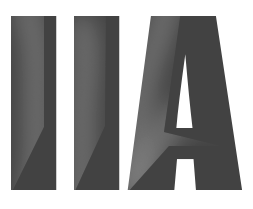Evaluate the coverage in your health insurance plan to determine how much of the costs your insurance will cover and how much you will have to pay. Ask different programs if they offer sliding scale fees—some programs may offer lower prices or payment plans for individuals without health insurance. Three medications are currently approved in the United States to help people stop or reduce their drinking and prevent relapse. They are prescribed by a primary care physician or other health professional and may be used alone or in combination with counseling. In addition, addictions can sometimes mask underlying mental health problems, such as anxiety, depression, sleep disorders, and even psychosis. If you are feeling blue or agitated, or you are concerned that the world or other people seem strange or upsetting since you quit, talk with a doctor.
Exercise and Addiction Recovery

The type of medication a doctor prescribes depends on the type of addiction that is being treated. For example, there are different medications available to treat opioid, nicotine, and alcohol addiction. You may have lost touch with old friends and loved ones, and changing your behavior may make it difficult to spend time around people https://thearizonadigest.com/top-5-advantages-of-staying-in-a-sober-living-house/ who are still using substances or engaging in certain behaviors. But finding people who support your recovery can be very helpful and may improve your outcomes. For example, a person who is trying to quit smoking would start by deciding whether they are going to stop smoking cold turkey or gradually reduce their nicotine use.
Recovery Funding

Just as some people with diabetes or asthma may have flare-ups of their disease, a relapse to drinking can be seen as a temporary setback to full recovery and not a complete failure. Seeking professional help can prevent relapse—behavioral therapies can help people develop skills to avoid and overcome triggers, such as stress, that might lead to drinking. Most people benefit from regular checkups with a treatment provider. Medications also can deter drinking during times when individuals may be at greater risk of relapse (e.g., divorce, death of a family member).
Medical and non-medical addiction specialists
- It’s one of the 16 categories of content the company’s policies restrict its users from posting.
- You’re likely to start by seeing your primary health care provider.
- This can potentially help the person discover healthy ways of coping with bad feelings, without using drugs.
- Going through the ways your addiction has taken away from your life and how it has impacted others may be painful.
- This article discusses what you will need to do to overcome an addiction and offers tips that can help.
It may take time, but you can recover from SUD and the relationship issues that stem from it. If you need further help or support during the relationship recovery process, consider speaking with an individual, family, or Sober House couples therapist. Repairing relationships is a critical part of 12-step programs and one of the four supporting pillars of recovery, according to the Substance Abuse and Mental Health Services Administration (SAMHSA).
Research has found that of the 20.3 million adults in the U.S. who have a substance use disorder, 37.9% also have another type of mental illness. Look for things that will help occupy your time and keep your mind off of drug cravings. Even simple things like talking to a friend, watching a television show, reading a book, or going for a walk can provide a sufficient distraction while you wait for a craving to pass. However, if you are feeling depressed or find yourself constantly wanting to return to the addictive behavior, you should seek support and treatment.
- There is no set timeline for how long it will take someone to go through the steps.
- Sustaining behavior change until new patterns become ingrained is difficult under the best of circumstances.
- In addition, addictions can sometimes mask underlying mental health problems, such as anxiety, depression, sleep disorders, and even psychosis.
- Families can develop awareness of a loved one’s emotional, environmental, and social triggers of substance use and manage those.
Alcoholics Anonymous or AA is the original recovery program that brought the world the 12 steps of recovery. Stopping drug use is just one part of a long and complex recovery process. When people enter treatment, addiction has often caused serious consequences in their lives, possibly disrupting their health and how they function in their family lives, at work, and in the community. For people with addictions to drugs like stimulants or cannabis, no medications are currently available to assist in treatment, so treatment consists of behavioral therapies. Treatment should be tailored to address each patient’s drug use patterns and drug-related medical, mental, and social problems. Medications are also available to help treat addiction to alcohol and nicotine.
- Neuroscientist Adi Jaffe, Ph.D., who himself recovered from addiction, outlines five steps.
- Topics could include the neurological aspects of addiction, the cycle of addiction, and the long-term effects on physical and mental health.
- Group therapy sessions focusing on relapse prevention equip individuals with the skills and mindset needed to overcome setbacks.
- Gaining the skills to avoid relapse is a necessary part of the recovery process.
- In the absence of triggers, or cues, cravings are on a pathway to extinction soon after quitting.
- People resist addiction recovery programs because they mention God.
Improved communication can help individuals mend relationships damaged by addiction. Topics may include identifying warning signs, seeking help during a crisis, and developing a strong support system. More information is below about understanding relapse and preventing relapse after substance abuse treatment. Long-term recovery is not a final destination but rather an ongoing process of facing and coping with life without retreating into addictive behaviors. It takes continuous commitment, which can waver at any time—particularly times of stress. Medications can be utilized to treat symptoms of withdrawal, help people remain in treatment, and prevent relapse.
Whatever the method of delivery, seek immediate medical care after using naloxone. Medications for opioid use disorder are safe, effective, and save lives. While we are unable to respond to your feedback directly, we’ll use this information to improve our online help. American Addiction Centers (AAC) is committed to delivering original, truthful, accurate, unbiased, and medically current information. We strive to create content that is clear, concise, and easy to understand. Shift perspective to see relapse and other “failures” as opportunities to learn.

Leave a Reply